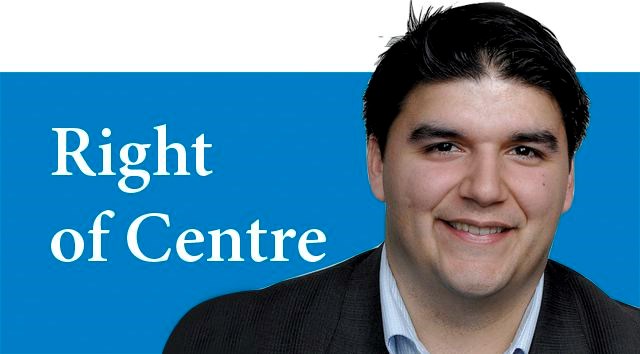I missed the celebration of Canada’s First Peoples at the park last week. Of course, these functions are a mixed bag: the food is always amazing and the performances are well staged, but it never fails to be interrupted by some authority telling us we’re all powerless victims who have the right to ultimate revenge against non-aboriginal Canadians.
Honestly, it’s enough to make one give the sound guy $100 to drown them out with choice “Brocket 99” recordings.
It’s not easy being the lone inconvenient Indian. But it is a hairshirt I continue to wear in the vain hope that one day aboriginals “will not be judged by the colour of their skin, but by the content of their character;” yet those guilty of racist tribalism are no longer the colonizers but the oligarchs of we the colonized who demand total conformity to the historically inaccurate tales they use to gain leverage over our pathetic legislators for more money and less transparency.
Something distinctly different about North American colonization as compared to other colonial histories is that whereas a new serfdom developed in Central and South America, the Pacific, and India, First Nations in Canada and the United States were never enslaved, except by each other of course. Macabre as it might be to say it, aboriginal serfdom in Canada had to wait until our own esteemed leaders and their friends in “cultural studies” imposed it upon us.
It never ceases to amaze me how much cognitive dissonance is required to be a good Indian these days. I cannot both be a powerless victim because of an unalterable past yet empowered in the present to seek endless reparations; I cannot really want reconciliation if I continue to use violent rhetoric; if past overlords abused my people, why should I entrust my future to new overlords who are less accountable and more distant? None of it makes sense.
I often wonder how the image of the protesting First Nations became so powerful. I meet more aboriginals in the resource industry than anywhere else, and they seem a lot happier than natives I’ve met skulking around Marxist professors. Who is teaching their kids to stand in front of projects that will employ and benefit hundreds of First Nations people? And when it comes to the leaders and spokespeople, are they really benefiting anyone but themselves by saying “no?”
Ultimately, all of this comes down to a question of responsibility. I will be the first to admit that life isn’t fair and that there are circumstances that make for difficult starting points. But we cannot, as a country, a community, a tribe, or individuals, allow ourselves to give into despair, lowered expectations, resentment, and, finally, vengeance. I must set my own house in order; then my family’s; then my community’s; then, maybe, the wider horizon. It’s my burden to bear.
There are great rewards to be had by those who learn to better themselves and build up their tribes by hardwork and discipline rather than political chicanery. Economic prosperity and a strong community ethic holding families together can preserve a culture and make it grow - one need only look at the successes in the Okanagan and Alberta for evidence. But such activity has the terrible side effect of making people independent - which is a mortal threat to our oligarchs.
Put another way, I don’t want another cent of my taxes going to the wasteful, tokenistic projects of any political class, be they aboriginal or not. But I’d be happy to support a business run by my fellow Indians, knowing that those profits are supporting a family’s plans to better its own future and that of its community, simply by participating and living in it. What a novel idea.
In the end, the problem with having a day for Canada’s First Peoples is that we shouldn’t need it. Aboriginal identity has become a wedge used by the worst kinds of people; instead, we must recall our inheritance, cited in the anthem: “Our home and native land... glorious and free.”



